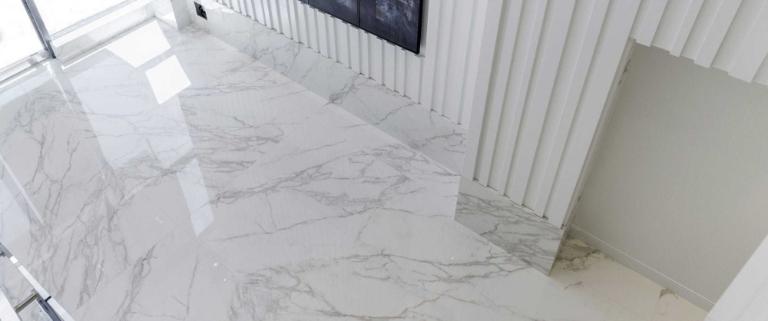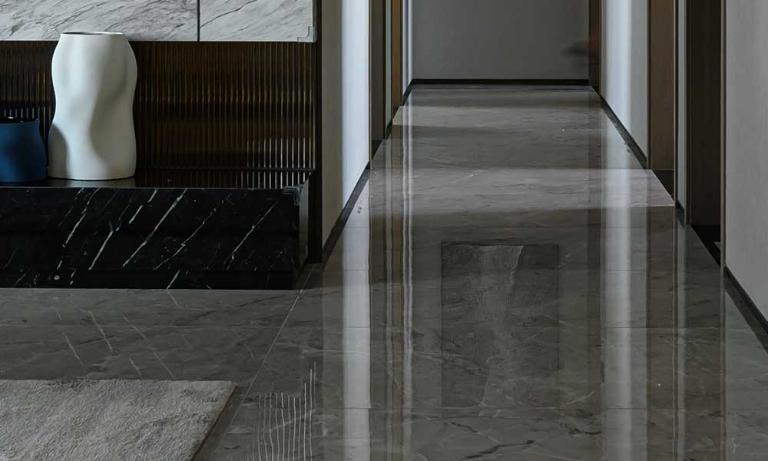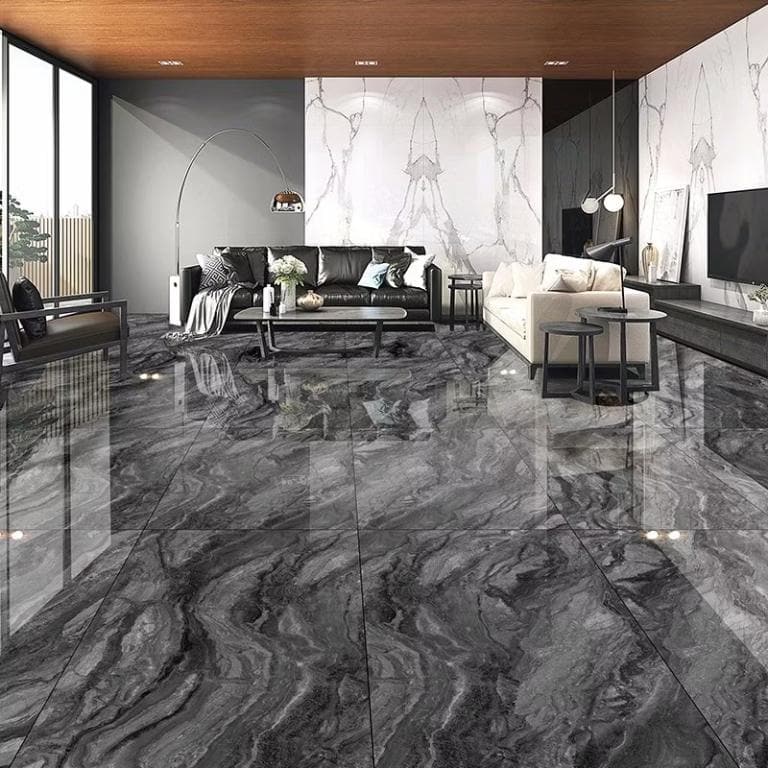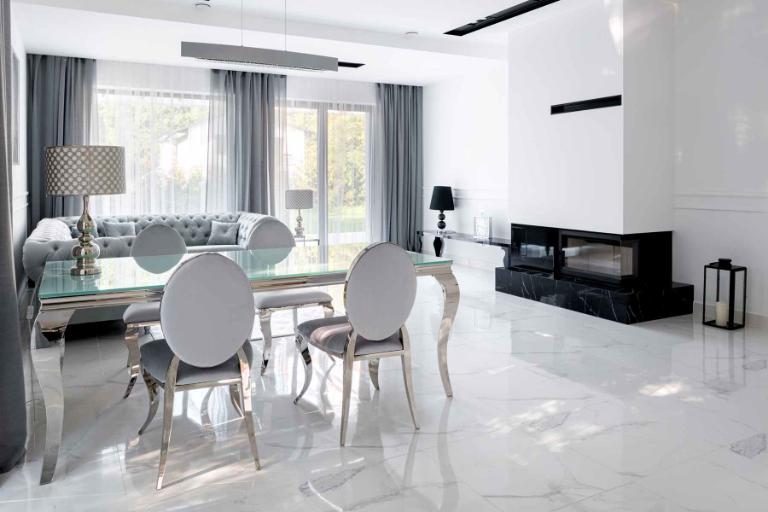Marble flooring has long been a symbol of elegance and luxury in both residential and commercial spaces. Its timeless beauty, durability, and versatility make it a popular choice for homeowners and designers alike. In this article, we will explore the various aspects of marble flooring, including its types, benefits, installation tips, and maintenance guidelines.

Table of Contents
ToggleWhat is Marble Flooring?
Marble flooring is made from natural stone that has been quarried and cut into tiles or slabs for use in various applications. Known for its unique veining and rich colors, marble adds a touch of sophistication to any space. It is available in a wide range of types, each with its own distinct characteristics.
Types of Marble Flooring
- Carrara Marble: Originating from Italy, Carrara marble is known for its soft white background with subtle grey veins. It is often used in bathrooms and kitchens due to its classic appearance.
- Calacatta Marble: Also from Italy, Calacatta features a white base with bold gold or grey veining. This luxurious marble is often used in high-end projects and statement pieces.
- Statuario Marble: Statuario is recognized for its striking contrast between the white background and dark veins. It is ideal for creating dramatic focal points in any room.
- Nero Marquina: This black marble from Spain is adorned with fine white veins, making it a sophisticated choice for modern interiors.
- Crema Marfil: A beige marble from Spain, Crema Marfil offers warmth and versatility, making it suitable for various design styles.
- Travertine: Known for its porous texture and earthy tones, travertine adds a rustic charm to spaces and can be used both indoors and outdoors.

Benefits of Marble Flooring
1. Aesthetic Appeal
Marble flooring creates an unparalleled visual impact with its natural patterns and colors. Each slab is unique, ensuring that your floor will be one-of-a-kind. The luxurious look of marble can elevate the overall ambiance of any room.
2. Durability
Marble is a highly durable material that can withstand heavy foot traffic when properly maintained. Its strength makes it an excellent choice for high-traffic areas such as hallways, living rooms, and kitchens.
3. Easy Maintenance
One of the advantages of marble flooring is its ease of cleaning. Regular sweeping and mopping are usually sufficient to keep it looking pristine. Additionally, marble’s natural resistance to stains helps maintain its beauty over time.
4. Hypoallergenic Properties
Marble does not harbor dust mites or allergens like carpets do, making it an ideal flooring option for those with allergies or respiratory issues. Its smooth surface allows for easy cleaning and improved indoor air quality.
5. Temperature Regulation
Marble has a natural cooling effect that can help maintain comfortable indoor temperatures during warmer months. This property reduces the need for excessive air conditioning, contributing to energy savings.

Installation Tips for Marble Flooring
1. Prepare the Subfloor
Before installing marble tiles, ensure that the subfloor is clean, dry, and level. Any imperfections can affect the final appearance of your floor.
2. Plan Your Layout
Take time to plan the layout of your tiles before installation. Using chalk lines can help you create a symmetrical design that enhances the overall look of your flooring.
3. Use Quality Adhesives
Choose high-quality thin-set mortar specifically designed for marble installation to ensure a strong bond between the tiles and the subfloor.
4. Grouting
After installing the tiles, allow them to set for at least 24 hours before applying grout. Use a damp sponge to clean excess grout off the tile surface before it dries.

Maintenance Guidelines
Maintaining marble flooring requires some care to preserve its beauty:
- Regular Cleaning: Sweep or vacuum regularly to remove dirt and debris.
- Use pH-neutral Cleaners: Avoid acidic cleaners that can damage the surface; instead, opt for pH-neutral solutions.
- Seal Your Marble: Applying a sealant every six months can protect against stains and enhance durability.
- Address Spills Promptly: Wipe up spills immediately to prevent staining.
Marble flooring offers an exquisite blend of beauty, durability, and functionality that can enhance any living space. With proper care and maintenance, it can last for generations while retaining its timeless appeal. If you are considering upgrading your floors or designing a new space, marble flooring could be the perfect choice to create an elegant atmosphere.
Whether you’re looking to add luxury to your home or simply appreciate the aesthetic qualities of natural stone, investing in marble flooring will undoubtedly elevate your interior design while providing lasting value.
This article provides a comprehensive overview of marble flooring while ensuring originality in content and style tailored specifically for readers interested in this elegant material.
